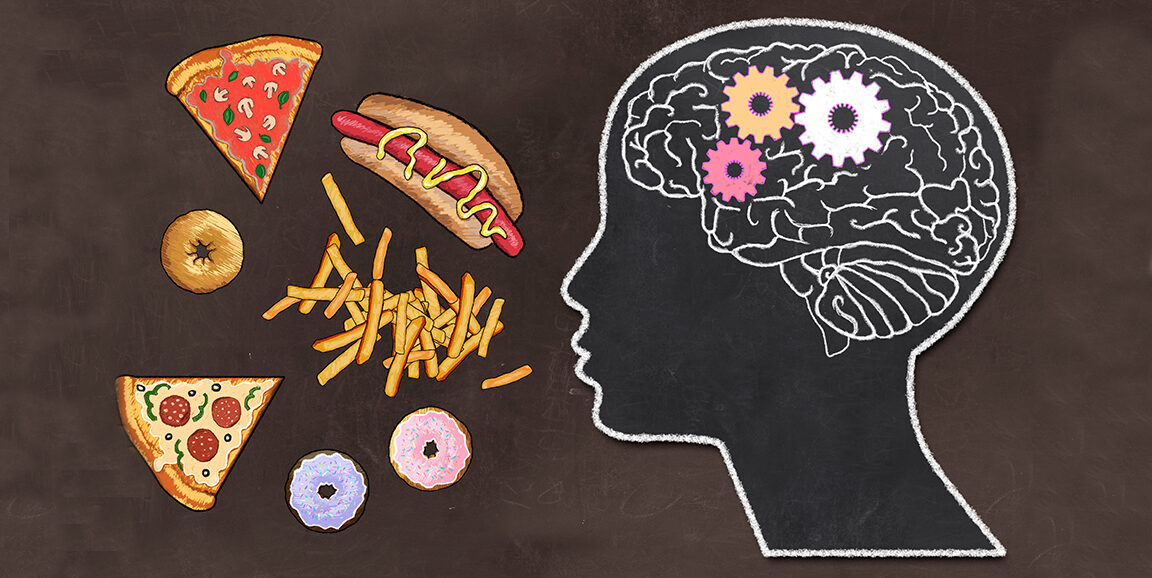Binge Eating and Weight Gain;
Navigating the Complex Relationship Between Binge Eating and Weight Gain

Binge Eating Disorder (BED) is the most common eating disorder in the United States, characterized by episodes of eating large quantities of food in a short period, often to the point of discomfort, and accompanied by feelings of loss of control and shame. One of the most visible consequences of BED can be significant weight gain, which brings its own set of health risks and emotional distress. This blog aims to explore the intricate link between binge eating and weight gain, shedding light on the underlying causes, the impact on health, and effective strategies for managing both. Book here to see how I can help you with Binge Eating and Weight Gain.
The Cycle of Binge Eating and Its Impact on Weight
- The Binge Eating Cycle: The cycle typically begins with a period of food restriction or dieting, leading to intense cravings, binge eating episodes, guilt, and then more restrictive dieting, perpetuating the cycle.
- Contributing Factors to Weight Gain: Regular binge eating episodes result in a high intake of calories in a very short time, often without corresponding physical activity to burn off the excess energy, leading to weight gain.
Understanding the Health Risks
Weight gain associated with binge eating disorder can lead to a myriad of health issues, including:
- Increased Risk of Obesity: Frequent binge eating significantly increases the risk of becoming obese, which, in turn, raises the risk of related health problems.
- Metabolic Syndrome: Conditions such as high blood pressure, high blood sugar, excess body fat around the waist, and abnormal cholesterol levels, which increase the risk of heart disease, stroke, and type 2 diabetes.
- Psychological Impact: Beyond the physical health risks, weight gain from BED can exacerbate feelings of guilt, shame, and low self-esteem, further entrenching the cycle of binge eating.
Breaking the Cycle: Strategies for Managing Binge Eating and Weight Gain
- Cognitive Behavioral Therapy (CBT): CBT is an effective treatment for BED, helping to break the cycle of binge eating by addressing the underlying thought patterns and behaviors that contribute to the disorder.
- Nutritional Counseling: Working with a dietitian to develop a balanced, non-restrictive eating plan can help normalize eating patterns and reduce the urge to binge.
- Physical Activity: Incorporating regular, enjoyable physical activity can improve mood, reduce stress, and help manage weight without the pressures of intensive exercise regimes.
Lifestyle Changes and Support Systems
- Building a Support Network: Finding support from friends, family, or support groups can provide encouragement and understanding, reducing feelings of isolation.
- Mindfulness and Stress Management: Techniques such as mindfulness meditation can help manage the emotional triggers of binge eating, reducing episodes and their impact on weight.
- Self-Compassion: Cultivating a compassionate attitude towards oneself can ease the guilt and shame that often accompany binge eating and weight gain, opening the door to more positive lifestyle changes.
Embracing the Journey to Recovery
Recovery from binge eating disorder and managing weight gain is a journey that requires time, patience, and compassion. It’s about more than just weight loss; it’s about finding a balanced and healthy relationship with food and one’s body. The path to recovery is personal and can involve setbacks, but with the right strategies and support, lasting change is possible Book here to see how I can help you. To learn more about the services I can help with, please see here.

